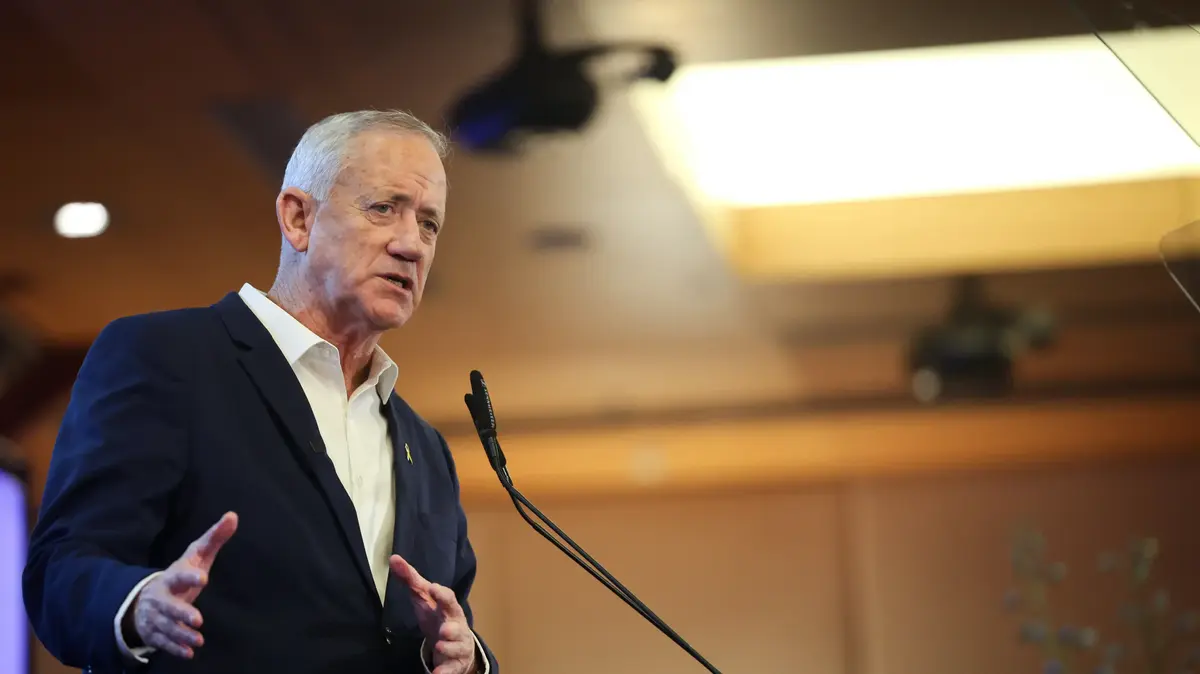When we are told "wedding" many images come to mind: a beautiful couple holding hands, a canopy, excited parents, a glass breaking.
The cynics of our generation may have an image of a generic banquet hall, teenage waiters carrying plates with a piece of meat, crowded trips to all kinds of banquet halls in seats we didn't even know the names of and a "fine" in the form of an honorable check.
Some of us may be imagining our wedding, the many preparations and the big day, and some of us may be imagining the life after and the family they have started or will start.
There are few people who, when they are told wedding, they imagine a prison.
But unfortunately, this picture is not far from reality.
Marriage in the State of Israel is a life into which the couple may enter voluntarily, but there is no way out of it.
That is, there is a way out - only if the other party agrees to it.
Fortunately, most couples who divorce do so by mutual consent.
Even if one party wants to dissolve the relationship more than the other party, usually the party that is more interested in the relationship agrees to divorce and does not hold the party that initiated the separation by force.
But this normality has many exceptions, in 2020 11,465 couples divorced in Israel, 57% of them were consensual, the rest started as a conflict.
According to court data for that year, 2,262 divorce claims were filed by the wife and 1,496 by the husband.
In a simple calculation, 3,758 lawsuits by people who wanted to divorce but had to fight for this right.
When it comes to thousands of cases every year, it cannot be considered a marginal phenomenon.
Existing solutions to the situation are found within Jewish law.
The Rabbinical Court, photo: Oren Ben Hakon
In such cases, when one of the spouses requests a divorce and the other party refuses to do so, the spouses are referred to a mediation procedure in the assistance units located in the courts and tribunals, in order to try to reach agreements.
For some couples, the mediation process solves the problem and for those who do not, the case continues for discussions in the courts.
These discussions can last for years.
Worse, they can go on for years without real progress in the process.
Thus, for example, a woman named Danit (pseudonym) came to us at the "Dead End" organization, after 3 years of hearings at the court in Be'er Sheva.
When we asked her what the court determined in the judgment it gave, it turned out that it did not give judgments or decisions in the case at all.
So what did the judges do there for 3 years?
They tried to get Danit and her husband to divorce by consent.
Ask the husband what he wants, ask the wife what she wants, push him a little, pressure her a little and finally send them home to think about things again and try to reach an agreement together with the lawyers.
And so God forbid it repeats for 3 years.
Only after we entered the picture, we were able to get the procedure on the right track, at the end of which the court gave a verdict and the husband agreed to grant the divorce, and that also took several more months.
This case is not uncommon.
On the contrary, in most cases that come to us, we hear about similar conduct.
A court that succeeds in getting a reluctant spouse to grant a divorce in a short time is the exceptional case.
Marriage is not a prison
Let's go back to the starting point.
Marriage is not supposed to be a prison.
A marriage bond is a binding and long-lasting bond, but it should not be a binding bond from which there is no way out.
The ability to leave a relationship that is not good for us is necessary for every man and woman.
In order for us to really be able to look at marriage with positive and happy eyes, we need to allow each and every woman the freedom to divorce without the need for the consent of the spouse.
How do you do that?
It is possible to sign a prenuptial agreement (civil document) and the deed to prevent moorings (religious document) and such a combined signature allows us to protect ourselves.
The existing solutions to the situation are found within Jewish law.
Couples who want to get married according to the religion of Moses and Israel can do so and if they sign the right documents they can also protect themselves against refusals of divorce and attachment.
The State of Israel today adopts the strict standards of the ultra-orthodox rabbis who sit in the rabbinate, and therefore leaves women and men chained against their will.
But refusals to divorce and attachment are not decrees of fate, and every couple who wants to protect themselves from these phenomena can and is invited to do so independently.
If you are about to get married or if you are already married, signing these agreements just before Tu Bav is probably the most romantic thing you can do, so that your relationship does not become a prison but is always based on love and mutual choice for each other.
Were we wrong?
We will fix it!
If you found an error in the article, we would appreciate it if you shared it with us










/cloudfront-eu-central-1.images.arcpublishing.com/prisa/2C5HI6YHNFHDLJSBNWHOIAS2AE.jpeg)



